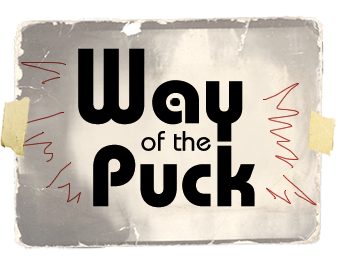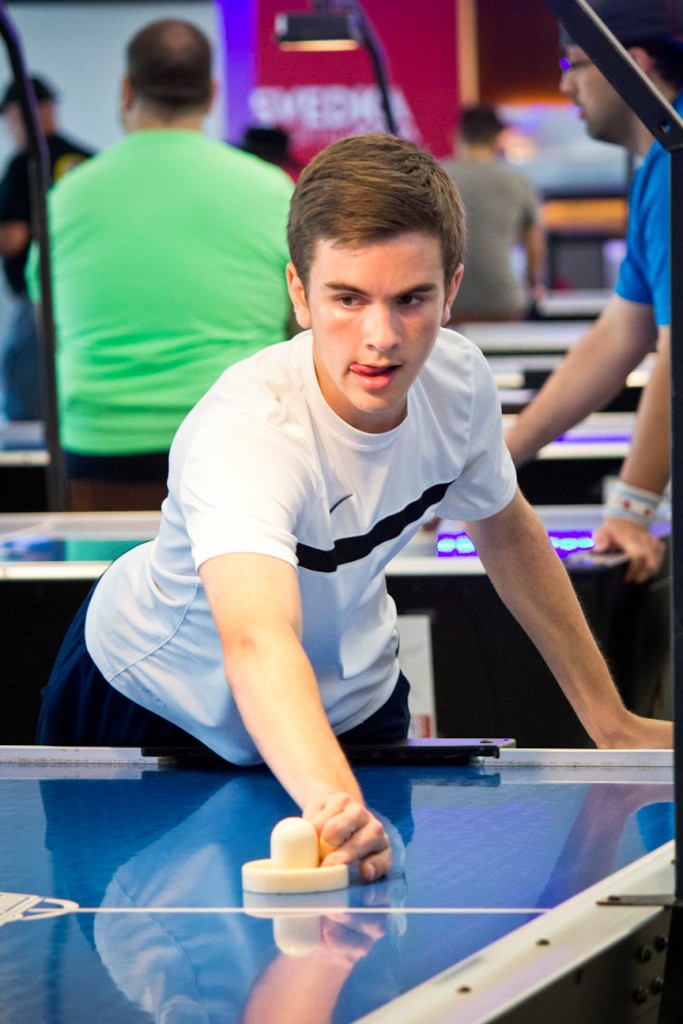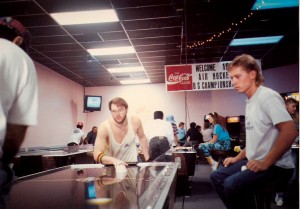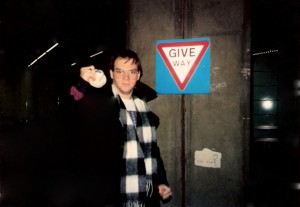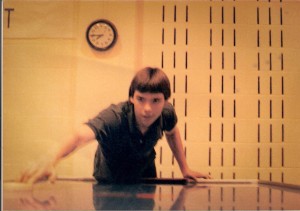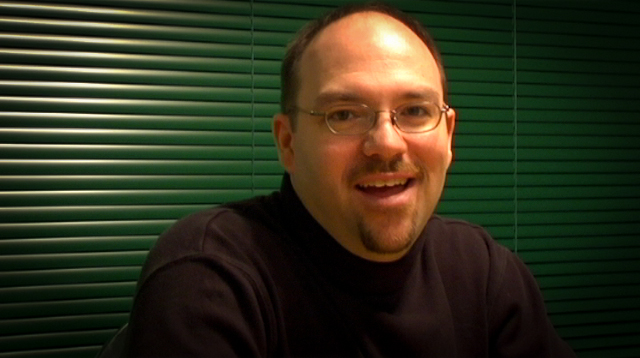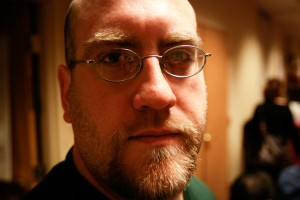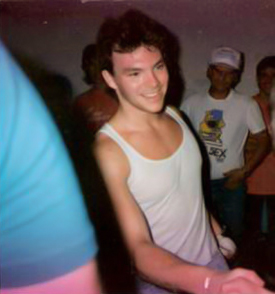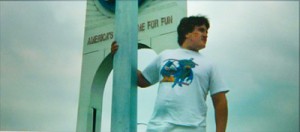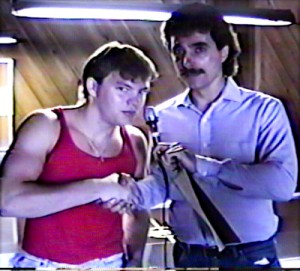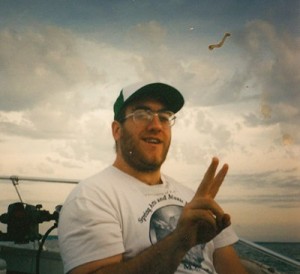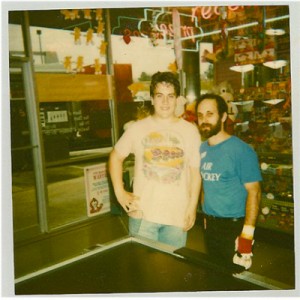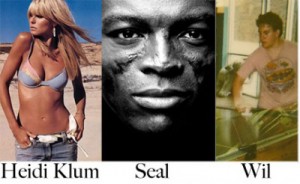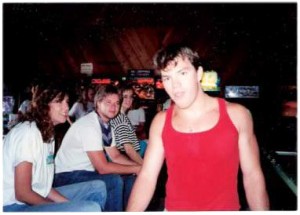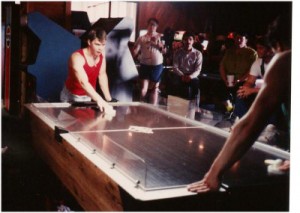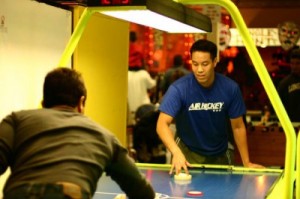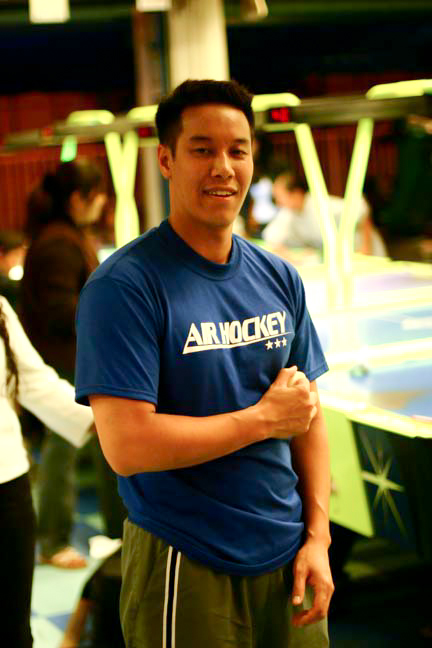The Best Air Hockey Player in the World is a 16-Year-Old “Kid” From Beaumont, Texas
Air hockey keeps getting older and so does the median age of its player base. The second wave of young players—who connected with the sport during the 1990s—are now firmly in their 40s. Players in the Old Guard are in their 60s. Sometimes air hockey feels like that Stallone/De Niro boxing movie, Grudge Match, for better or worse. Where is the new blood? The last (and only) time a teenager became world champion was back in 1989.
Colin Cummings recently changed all that by winning two world championships, back-to-back, as a 16-year-old. Although his rise seems meteoric, it was the direct result of six years of hard work—playing air hockey nearly every day and focusing on improving specific skills. His air hockey adventure began as a ten-year-old when his family moved into a house in suburban Houston across from frequent top-ten finisher Brian Accrocco and his son Steven. Cummings first played on a professional-style table in the Accrocco’s garage, and it was there that he learned about the humiliation of losing, and losing often.
WOTP: Why does air hockey appeal to you? The game came out of the 1970s and even the idea of a video arcade seems ancient now.
Cummings: Strangely enough, to me air hockey isn’t an arcade game. I’ve played in people’s garages, or in people’s houses, or at the movie theater, or at SRO in Houston, which has four tables. I’ve never really imagined it as an ancient arcade-type game. I thought it was new and fresh and it was never in my mind that it was old or dying out.
WOTP: At what point did you realize that this was something that you could be good at?
Cummings: In 2012 I competed in my first U-14 tournament for kids at the World Championships and I ended up beating Steven [neighbor Steven Accrocco] in the finals. When I saw that I could beat a kid who had been practicing and playing air hockey his entire life, I knew that I had some kind of skills. And after watching the final of the main tournament between Billy [4-time world champion Billy Stubbs] and Ehab [defensive genius Ehab Shoukry] and just seeing how much competition was going on and how many people were watching the tournament and how some of these people literally put their whole lives into it—I knew it was something that I’d stick with for a long time. That was the first time I felt could really advance in this a lot further and maybe someday become world champion.
WOTP: Why do you think you were able to surpass your neighbor Steven Accrocco? You had far less experience.
Cummings: I think I just wanted it a lot more than he did. When we first met he was the king and he’d already been playing air hockey for six years. At that point he probably thought he had reached the highest level. One day I started thinking about how I had all the same materials given to me—I had the same body size as Steven and we were both smart. I wondered why he could beat me and I couldn’t beat him. So before that day I’d go over to his house and maybe we’d play for an hour before hanging out or riding bikes or whatever we’d do, kid stuff. But after that day I realized that if I played every day more seriously eventually I’d start passing up people. And that’s just exactly what happened.
WOTP: Let’s talk a little bit more specifically about your game. What is your playing philosophy?
Cummings: I have about six different ways that I like to hold the mallet and each helps me with different shots. I have a lot of different ways to attack people. I definitely wouldn’t say that I practice shooting one shot 50 times and that I can hit it 49 out of 50—that’s not how I really work. I can shoot every shot and when I’m in the zone usually it’ll go in perfectly every time. I don’t have a lot of mess-ups in tournaments anymore. I like to have a whole bunch of different shots—I like to widen my artillery—to make sure that whatever kind of defense I’m put up against I have the perfect solution they might not be ready for. So one advantage is this huge variety of different tools that people aren’t ready for. Another is that I’m extremely fast and I run pretty much every day. And I come in with the attitude that I’m not going to stop—I’m not going to lay down—there’s no way that I’m going to slow down for anything.
Colin traveled to Colorado in 2015 to compete in the AHPA World Championships. Although his best finish ever was sixth place, he beat his neighbor’s father Brian Accrocco in the winner’s bracket final en route to dethroning the current world champion, Billy Stubbs, in the championship. Colin became the youngest world champion ever, although some grumbled because this was the first tournament promoted by the divisive, upstart AHPA, and fewer players had attended.
WOTP: Do people ever try to delegitimize your championships by saying you won against a weak field? There are people who always talk, right?
Cummings: A lot of people did say that after Colorado but those words probably affected the people around me more than they affected me. I knew I had just taken down the champion and if people thought they were going to give me a harder time than him, well, that didn’t make much sense to me. I was happy that I won either way. Some people said, “The only reason Colin won is because there was a low turnout,” so I was expecting somebody to challenge me for my ranking. But nobody stepped up. Nobody said, “I’m going to take out this little sixteen-year-old kid.” Everybody just got quiet.
WOTP: Can you talk about your next tournament?
Cummings: A little after the Colorado Tournament the USAA announced the World Championships in Houston. This was going to be the tournament where all of the old players came to take back the title from me, thinking that I didn’t really deserve it. The turnout was going to be a lot larger and a lot of the big dogs like Wil Upchurch and Andy Yevish were going to fly in. Billy Stubbs was going to be there and Danny Hynes and Ehab Shoukry and some of the Venezuelan players. It knew it was going to be a great experience. I thought, “Okay, I’m going to have to just win this one too!”
WOTP: What do you think about the Venezuelans and their style of play?
Cummings: I love all of the Venezuelan players. Every time I went to a tournament I always end up walking over to them and saying, ”I love your game; I can’t believe you can do all this cool stuff!” But before this tournament, Pedro [4-time runner-up Pedro Otero] pulled me aside and told me: “It’s going to be me and you and we’re going to play in finals. And I will not lose. I will not lose.” I thought, “Man, I’ve never beaten Pedro before and he’s an angry Venezuelan guy who can kick butt!” But I just said, “Okay, let’s get to the finals!”
WOTP: Were you able to compete against many air hockey legends at this tournament?
Cummings: I was able to play against almost everybody. I played Andy Yevish a lot especially since he was my double’s partner. I played Billy [Stubbs] one practice game and I think I played Ehab too in a double’s game and I definitely played Tim [10-time world champion Tim Weissman] and Jesse Douty [11-time world champion]. And even Jose Mora [3-time world champion]. I played all of them. I had a huge smile on my face the whole time. In singles I was able to play against Wil Upchurch [2-time world champion] again, who is this gigantic man with a great beard and scary glasses. I thought he was going to destroy me! And somehow I was able to beat 11-time world champion Danny Hynes, who has crushed me so many times before. He beat me the first two games but I didn’t give up. I said, “You know what? I don’t care. I’m going to play him even harder!” And I started shooting more off-goals and outspeeding him and using his best shot against him, which is the right-wall-under. And I kept myself in the match by stuffing his cuts, which didn’t make him happy!
WOTP: Can you describe what it was like playing Pedro Otero in the finals?
Cummings: Pedro ended up beating Danny [Hynes] to win the loser’s bracket. Danny and Pedro are really good friends and Danny was taking him down. He was actually up 3-0 and then somehow Pedro came back and won four games in a row. He was on fire—I thought he was this giant coming up to take me down!
Afterwards, Pedro came up to me and said, “See? It’s me and you now. It’s going to be a great match!” And I just said, “Oh man!” Pedro and I played three years ago in Chicago and he beat the nuts out of me, 4-0. That definitely wasn’t my time. I wasn’t anywhere near the right level. I remember him pounding the hardest right-wall-unders that I’d ever seen. And you know it’s coming. You just know it’s going to be a right-wall-under right in your face and you can prepare for it all you want but he’s just going to shoot it anyways. And it’s just so fast that I wasn’t ready for it at the time.
This time I knew it was coming so I knew I had to hold the mallet in a way so that I didn’t have any fear of how fast the puck was coming. I couldn’t be afraid of getting my fingers hurt and after a while I gained confidence. A couple of times when he shot his right-wall-under or right-wall-over I charged it and after charging it a couple of times I knew that he was a little bit iffy on whether he should shoot it or not. And whenever I saw him thinking about it that’s when I could tell what shot he was going to shoot. On offense I went with a lot of cuts and cross-straights. The Venezuelans don’t play as much of a set-up game as we Americans do so they are not as used to it. Plus I did it a lot faster.
The hard-fought final went to seven games, with Cummings prevailing over Otero in the last game 7-5. Although some players had dismissed his previous victory in Colorado, Colin silenced his critics by defeating a deep field in the best-attended tournament in air hockey history.
WOTP: Now that you are world champion do you feel any pressure to retain your title?
Cummings: Yes, but probably less pressure than past champions have. If people beat me then I have a lot of time to come back and beat them again. The first person that’s going to beat me could be anybody. Mostly it depends on how much I want to keep my skills going. All I think about is getting myself better, getting the people around me better and just having fun in air hockey right now, that’s all I can do. Because as soon as I lose the fun that’ll be the day that I lose a tournament.
WOTP: So air hockey is still as fun as it was?
Cummings: It’s a different kind of fun. Before it was fun to just hang out with my friends—people who were the same age as me—and talk about air hockey and other things. But as I got better people didn’t want to play me anymore because they knew I’d just wreck them without even trying!
WOTP: Are younger people gravitating toward air hockey or are you a singularity here? How does the future look for the sport?
Cummings: About 20 people in my school are really interested in air hockey full force and are going to try and play in the next world tournament with me. I think there’s a bright future ahead for air hockey but we’re going to have to put some work into it. I see a whole lot of things we can do in the future. I want to start setting up air hockey clubs more widely in different areas. I’m going to fly to the Air Force Academy in Colorado; I’m going to start a foundation here in Beaumont before I leave. Once we just establish certain areas we’ll be able to get more and more air hockey clubs set up everywhere and we’ll have a lot more people that will be interested. Our goal should be to keep new players, not just show them air hockey one time and then let them go off.
WOTP: Is there anything else you’d like to add?
Cummings: Everybody really does like air hockey! If I bring it up in conversation, people will usually say, ”Man, I love air hockey; I want to go play that.” Sometimes the hard part is just getting a table somewhere, getting a nice location, getting players together.
◊◊◊
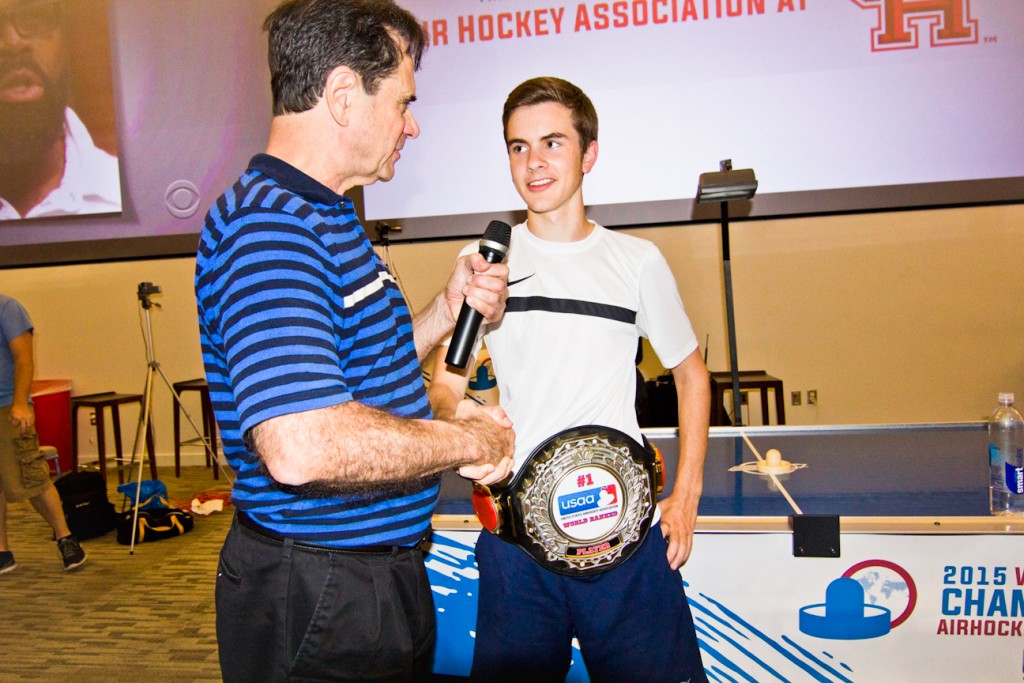
Rise of the Machine: An Interview With World Champion Billy Stubbs
Billy Stubbs is a 39-year-old creative director based out of Chicago, Illinois. He started playing air hockey seriously in 1993 while living in Georgia, trekking up to Atlanta every weekend to play with eleven-time world champion Jesse Douty. After finishing 48th in his first national tournament, he decided he needed to practice even harder and dedicated himself to systematic, rapid improvement. The following year he placed fifth, a result that raised eyebrows, and in 1995 he came out of nowhere and rolled through a deep field—beating champions Tim Weissman, Jesse Douty, and Wil Upchurch en route to his first national championship. He was twenty years and six months old, the third youngest champion of all time. Although some predicted that youthful Stubbs’ disciplined, analytical approach would deliver him several championships in the 1990s, he went seventeen years without winning another one. In 2012, at the tender age of 37, he finally became world champion again, prevailing first in Las Vegas and later in Houston that year. He won his fourth world championship in 2014.
Stubbs plays an unflashy, rational style of air hockey—some call it “robotic”—which has earned him the nickname “The Machine.”
WOTP: It took you seventeen years to win another championship. What happened?
STUBBS: I think that after I won that first one I had a motivational lapse and didn’t take it as seriously. Maybe I took it for granted—being young and winning. And thinking I could win by just staying at the same skill level I was at. I went to tournaments the next few years and started dropping down to 7 and 8 finishes, not horrible but not contending either. And then some time passed where I didn’t play but once or twice a year and it really showed in my results. In the next seventeen years a lot of other good players came up as well.
WOTP: So what changed for you?
STUBBS: Well, in 2009 a couple of guys here in Chicago, Dan Meyer and Brian Quezada, came out of nowhere. These guys took air hockey really seriously and wanted to play all the time and learn. And I was happy to have them being so passionate and dragging me out to play two to three times a week. That was great. After playing regularly with them for a couple of years I made the decision that I was either going to quit air hockey or make a big push to be as good as I could be. I realized that I’d played this game recreationally for almost two decades and Father Time was kicking in. Also, just being in my late thirties gave me a reason to want to be healthier and be in better shape, and using air hockey as a tool for those things was perfect. So I lost 42 lbs in 2011. I got in great shape, started playing every day, had better practice players with Brian and Dan, and took the game more seriously.
WOTP: Did you have regular workouts? What was your plan?
STUBBS: What I did was model my training regimen—which is 5 days a week, 2.5 hours a day on the table, plus cross training and video study—after the U.S. Olympic table tennis team. I was looking at how pro tennis players and pro basketball players did it. And I took a big look at MLB players and table tennis players to see what their training regimens were like and what would happen if I applied that same training to air hockey. I think the one that worked best was the one I just described—the U.S. table tennis team regimen—and the results show.
Also, I always have a three-month calendar of what I want to work on—regardless of whether a tournament is coming up or not. I think that the biggest difference is before a tournament the calendar gets a lot more granular. There’s a lot more detail on it because I’m making a bigger and more focused push. That’s the way I get my head around staying in air hockey—I give myself small milestones that are laid out weeks to months in advance.
WOTP: So you’re winning just because you’re outtraining everybody.
STUBBS: That’s exactly right! The reason I’m winning because I’m outtraining everybody! I think you see that in everything across life. The people who are successful are, by and large, not the people that have the natural talent. The people who are successful in business or sports or whatever are the people who put in long hours. Look at Roger Federer: He practices tennis eight hours a day on the court and video studies for two hours a day and he sleeps for twelve hours a day. So his life is tennis and you see that in the results. He is the greatest tennis player of all time.
WOTP: Applied toward air hockey, this approach seems both highly rational and totally crazy!
STUBBS: Yeah! When I was younger I loved playing air hockey but I was always aware of the public perception of it as a kid’s game—not something to be taken seriously. That was something that was always in the back of my mind, maybe on a subconscious level. But as I grew older I became more comfortable in my own skin and realized that air hockey makes me happy and I love playing it, so I’m going to make this push and I no longer care what anybody thinks. And I’m happy that I did it because it’s something that I’m really proud of.
WOTP: But how much of this good feeling is results based? If you were finishing in fifth or sixth place would you still train like this?
STUBBS: That would be really tough. I wouldn’t feel the same for sure, because I’d realize I was outpracticing everybody by a large margin. And if I’m still doing that and Danny [Hynes] is beating me when he plays once a week for an hour a day, it’d be tough to come to terms with!
WOTP: As a creative director and marketing expert do you have any opinions on how to increase involvement in the sport?
STUBBS: Right now we’re in such bad shape and I think it’s obvious. We need to improve our brand image; we need to get a website presence that is decent. We need to do a few other very basic blocking and tackling things—just very basic things that anybody else in business would do to help make their business grow. The problem is we just don’t have people willing to put in the time to do these things. These things take man-hours and we just don’t have people willing to put in that time.
I’ve said that if I win five tournaments I’m going to step away from playing fourteen hours a week. I’ll dial it down to about an hour a week and then I’m going to turn my attention more to marketing and promotion of the sport. So I’ll take those twenty hours a week that I’m dedicating to air hockey practice and flip them over to marketing and trying to help us grow. But right now I just don’t have time to practice and promote at the same time—that’s asking a lot of people.
WOTP: Do you ever feel any resentment? I mean, why does it have to be you who does this?
STUBBS: I don’t feel resentment because I haven’t done it yet either. I’ve never invested twenty hours a week into marketing air hockey, so how could I ask other people to do it too? No, not resentment, just disappointment.
WOTP: Any final comments?
STUBBS: Just get out there and try hard at something and take it seriously and get good at it. Simple story, you hear it all the time; people don’t do it. And I’m guilty of not doing it in my day job and other things in my life. But if you are committed to something you’ll see results.
Practice makes perfect. I heard it in band all the time when I was kid!
Billy has written dozens of insightful articles about air hockey tactics, mechanics, and training methodologies at his blog, Say AH. It’s a gold mine for anyone seriously interested in improving at air hockey.
Check it out at: http://billystubbs.wordpress.com
Interview with the Young Wolf: 10-Time World Champion Tim Weissman
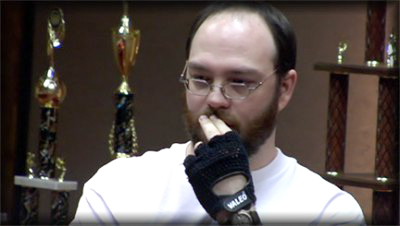
Tim “Young Wolf” Weissman
Two weeks ago two-time World Champion Wil Upchurch described a pivotal moment in his development when he was confronted by 90s pop sensation Seal and air hockey wunderkind Tim Weissman in the parking lot of a Houston gameroom in 1991. Only one person has won more air hockey World Championships than Tim Weissman—the mercurial Jesse Douty, who won eleven titles back in the air hockey Stone Age (the late 70s and early 80s). But few can dispute that Weissman took air hockey to a whole new level after dispatching Douty permanently. Weissman pioneered radical offensive and defensive playing styles that dominated competitive play from the late 80s to the mid-90s.
Many say that the best air hockey ever played was played by Tim Weissman back in the early 90s. Like many things in air hockey, of course, this claim is in dispute. But no one can argue that Weissman wasn’t the most revolutionary air hockey player of all time, when one looks at the level of play before and after his reign.
Previously, my cousin’s 11-year-old son, Henry, conducted an interview with current World Champion Davis Lee Huynh. We were delighted to hear that Henry’s interest in air hockey continues, and that he expressed a desire to ask some questions to 10-time World Champion Tim Weissman.
As before, I corrected some grammar and spelling but the questions are his. Here they are.
HENRY: Do you like Texas?
TIM: I love Texas! I’ve traveled around the country quite a bit as an adult and honestly, I have not found any other state with as much to offer. We have mountains, forests, rivers, ocean, desert, plains, large cities, small towns… It is over 700 miles from the east tip to the west tip. Plus, the American spirit is still alive and well down here. We don’t have an income tax, and the government is still friendly to business. But, above all that, we have the best air hockey players in the World. Sure, we have seen a few “decent” players come from other places, but nothing close to the amount of talent which has spawned from the Lone Star state!
HENRY: Are you the best air hockey player in history? The movie says you are.
TIM: Well, if a movie says it, it must be true. In all seriousness though, I think I am one of the best, but I can’t claim to be the best. I don’t think anyone has ever held a tighter grip during their reign than I did back in the early 1990’s. I won 9 consecutive World Championships and 28 major championships in a row over 5 years. But, I was pushing the envelope and folks had never seen many of the techniques I was using, such as the Circle Drift, quick release and the true “out” defense. Once those became part of the culture of the sport, people caught up and we have seen some phenomenal players since that time. Danny Hynes and Wil Upchurch, at their primes, were pure freaks of nature on the Table, unleashing offensive onslaughts never seen before!
HENRY: Tell me your SECRET. And don’t say “practice”.
TIM: Obsession. When I was on my 5-year winning streak, I ate, drank, slept, dreamed, imagined, thought, felt, inhaled and lived air hockey. I maintained the killer instinct in each and every tournament. When I was ahead in a game 6-1, and only needed a single point to win, I had the thought in the back of my head that I was in imminent danger of losing and had to push hard to finish my opponent off. I constantly felt that I was on the edge and could lose at any moment. It was when I started losing that edge, that hunger,the streak came to a close. I would go so far as to say that this is a good secret for any aspect of one’s life where you want to succeed or be the best. Certainly, you don’t want to lose yourself in your endeavors, but without a pure and real fire in your belly, it is hard to be great.
HENRY: Who has the craziest playing style in history?
TIM: Randy Lind, hands down. Oh, you said craziest style, not craziest person. Just kidding Randy! His style is very off-the-wall. He plays with a mallet attached to each hand, and he switches between them as he executes his attack. It can be very deceptive to newer players, but ultimately, I think when you have too much going on, you confuse yourself on a certain level. I am a big believer in keeping it simple. That’s part of what makes the Circle Drift so effective. It is very basic and simple on the surface, but from it, there derives infinite possibilities.
HENRY: Did you ever lose and feel really bad? When was that?
TIM: Every time I lose, I feel really really bad. Losing sucks. Even in my life today, I experience losses of various kinds. But, I learned some amazing life lessons from my experiences of loss in Air Hockey. First, and foremost, I learned that I hate to lose! And, that winning feels just so much better! But, more importantly, I learned that I never really understood how great it is to win until I really knew what it was like to have lost. It gave me a richer appreciation for winning, and it helped me stay humble. I also learned that losing is just a step toward winning.
When we lose, we look at what happened and analyze. We find out what contributed to that loss and how we can overcome that obstacle in the future.
HENRY: Do you make your children play air hockey? How old are they?
I have a 14-year-old boy, 10-year-old girl, 5-year-old boy and a 1-year-old boy. My children are required to play 5 hours of air hockey each and every day! Actually, the older ones play because they enjoy it. They are always begging me to practice with them. Most of the time, I am too tired from a long work day. Jacob, my oldest, won his age division at this last World Junior Championships. He is much better than I was at 14, but then again, I didn’t have a Table in my garage or a World Champion to teach me. My daughter is getting pretty good too and has a mean right-wall.
I’m glad you asked about children and air hockey though, because I do want to say that the only way I see air hockey ever growing beyond where it has been in the last 30 years is by involving children. Arcades and game rooms are pretty much a thing of the past, so where do we get our new players now? This question must be resolved for air hockey to make a leap forward. I have an answer, and I plan to try some pilot programs with the support of Mark Robbins and his new air hockey manufacturing company, Shelti, in days to come.
HENRY: How long can you hold your breath?
TIM: Funny you should ask…I actually have pretty decent lungs. I can stay underwater for around 1 min 30 seconds, give or take. One of my other interests is swimming. There is nothing more peaceful than swimming underwater across an Olympic size pool. It’s a great warm-up before a championship air hockey match!
Thanks, Tim!
Tim has a large rambunctious family and a large rambunctious array of interests. In addition to earning a Ph.D. in counseling psychology, Tim has been the owner of a special events company since 1996 and the owner of a Fish Window Cleaning franchise since 2008. His website is: http://www.fishwindowcleaning.com/619/
My Most Memorable Air Hockey Moment: Wil Upchurch, Part 2
Previously on My Most Memorable Moment, iconoclastic Dallas native Wil Upchurch descended into the Wolf’s den—Green’s Gameroom in Houston, Texas—to take on the cool kids, led by air hockey wunderkind Tim Weissman. If you missed the first half of Wil’s coming-of-age narrative, please click back to the PREVIOUS POST in order to get up to speed!
Tim emerged from that car with the confidence of the rich kid on a field trip. You know the one: The guy who buys all the stuff you want to buy even though you only have five bucks, and that’s for lunch? He stretched as Seal went into the final chorus, then reached into the back seat and pulled out his bag (much cooler than mine) as the sound diminished toward the end of the song. Then he shut the door, reached into the open window, and finally removed the keys. Who shuts the door and then turns the car off? Tim Weissman, that’s who, because the universe loves him.
In a heaven of people there’s only some want to fly… Ain’t that crazy?… Oh babe… Oh darlin…
The tournament came and went that weekend. Tim won… duh. I finished a disappointing 15th, and made my way back to Dallas to regroup, get better, and look forward to the next time. But a funny thing happened when I got back into town. Seal came on the radio, and I didn’t hate that song anymore. In fact, I could kinda see why people liked it. Seal’s voice was great, the lyrics were interesting…
Wait a minute! I thought to myself. What’s happening here?
And that was when I realized—when I was hearing that song, I was seeing Tim in my mind’s eye, emerging from his car and stretching languorously in the hot Houston sun, sure that whatever waited for him inside Green’s was going to turn out for the best.
In that moment I realized a fundamental truth about being a winner, a champion. Winners weren’t outside the circle or inside the circle, winners drew the circle. Tim could love that song for the same reason he could shut the car door before he took out the keys—because he was in control. Tastemakers and trendsetters don’t work hard to pick the next big thing…they wear it, they use it, they live it. And people get that, and they admire them for being in control, for loving what they love and doing what they do. That’s what makes it a hit.
Seal didn’t write his song to please his market or to conform to some imagined standard of popularity. No, he did the best he could do, and knew it was good, and walked through the world knowing that until even I had to admit that it wasn’t just “that damn song,” but a damn good song. Tim, with his unique diamond drift and out defense, wasn’t trying to please the Old Guard by mastering their techniques… he was doing the best he could do and knowing it was good.
As a young upstart air hockey player who had never seen Tim lose a tournament, I couldn’t help but always be gunning for him. I knew if I could take him down, I could take down anyone. You don’t get to be pack leader by picking off the whelps, after all. But seeing Tim enjoy that song taught me a new perspective. Before I saw him only as a villain, as someone I had to defeat. But now I felt like Zeus, raging against the mighty titan Kronos, mixing in feelings of admiration with the drive to destroy.
In that moment, my most memorable moment, I learned that it was ok to admire my opponents for who they were—for their skills, their successes, and the things they had that I didn’t—because that freed me to do the best I could, and to know that it was good. It freed me to draw my own circle. And that was the first step to becoming a champion.
Editor’s note: Wil won his world championships in 1997 and 2007. At this rate he will have to wait seven more years to win his third. That will make him the oldest player to ever win a final, by far.
Wil Upchurch is happily married and teaches public speaking in Ft. Wayne, Indiana.
My Most Memorable Air Hockey Moment: Wil Upchurch, Part 1
In many ways, two-time World Champion Wil Upchurch is the perfect embodiment of all things that make air hockey players…well… air hockey players. Outsize in both personality and proportion, Wil is cheerful, raucous, intelligent, powerful, and opinionated—part gamer, part athlete, part non-conformist, and all animal when he steps up to the Table. Wil is nicknamed the Juggernaut for good reason; when he gets up to speed he is not unlike that humongous spheroid rock at the beginning of Raiders of the Lost Ark that crushes everything in its path—except he’s hairier. And sweatier.
We asked Wil to talk about his favorite air hockey moment in his long and storied career. This is what he said.
The year was 1991 and I was just a young upstart air hockey player, though one that had already achieved a fair amount of success. I lived in Dallas, Texas, where I practiced with my friends and occasionally got to test my skills against two of my air hockey heroes—Paul Marshall and Mark Robbins—the two men who had introduced me to the sport.
Being from Dallas, I lived outside the air hockey Mecca of Houston, and could only imagine going to Colorado or Philadelphia to play against the greats that resided in those places. I was on the outside, looking in. Being a teenage boy with somewhat… esoteric… tastes in hobbies and interests, I felt on the outside of pretty much everything else as well.
There was a song on the radio that summer by a new artist named Seal. It was called “Crazy,” and I didn’t care for it at all. It played over and over again on the radio as I drove down to Houston for Vince Schappell’s Houston City Classic. What I wouldn’t have given for an iPod. But I endured it, and arrived at Green’s Gameroom in Memorial City Mall ready to live up to the high expectations I had set by placing third in the Texas State Championship earlier that year. The same doubts that plague me even now crept into my mind, those that said, “they all know you’re not that good” and “they all know each other, you’re here alone.”
Crazy yellow people walking through my head… One of them’s got a gun, to shoot the other one.
Though the Old Guard had welcomed me into the sport with open arms, the young players had not been so kind. It wasn’t so much that they were cocky—boy were they cocky—but that they were close to my age, and they were better than me. And they knew it. “Green’s Wolverines,” their shirts said. Shirts that marked them as together. As something special. Their de facto leader was Tim Weissman, air hockey wunderkind, who by that time was on a winning streak of a dozen tournaments or more. He seemed untouchable, unapproachable… especially to an outsider like me.
So it was that I arrived at Green’s on Saturday morning, ready to get inside and start warming up before the tournament began. As I pulled my air hockey bag out of the car, I heard that damn song echoing across the parking lot.
No we’re never gonna survive, unless… we get a little crazy…
I turned to see who was blasting it out their open windows, and it was a little red sportscar pulling into a space right in front of the arcade. I’d had to park several rows away. The person inside the car had the gall to just sit there jamming to the song while those of us on the outside suffered. As the door started to open, I thought to myself, Oh good, it’s stopping. But in fact it kept playing, even as the driver of that sportscar, none other than Tim Weissman, emerged.
Of course, I thought. He drives a sportscar, has a hot girlfriend, wins twelve tournaments in a row, has a great group of friends that whip me on the table every time I step up, and he likes that damn song. I never felt more like Ralph Macchio than I did at that moment. At least air hockey didn’t involve getting my leg swept…
…to be continued: Can Wil defeat the Cobra Kai, or will he scurry back to Reseda? (Dallas, I mean.) And what about Elisabeth Shue?
Wil Upchurch is happily married and teaches public speaking in Ft. Wayne, Indiana.
Exclusive Interview With Newly Crowned Air Hockey Champion (and Overlord) Davis Lee Huynh
Six years ago I interviewed Davis Lee Huynh for an article in Giant Robot magazine. He was ranked #10 at the time, and he practiced two hours a day, six days a week–studying game tapes 20 minutes a day. “That’s probably more than anyone else is doing at this point,” he had said. “I just gotta outwork them and hope they slack off.”
Three years later, Davis won his first championship. “Against a weakened field,” many naysayers remarked. Yesterday, Davis won his second championship– against the third-largest field of all time. He is not the most physically gifted or innately talented player, so his success story is a narrative of hard work. There will always be haters, but here’s a guy who set a goal and outworked everyone else to reach it and you can’t begrudge him that. It just so happens that his goal was to be the air hockey champion of the world.
Henry, the 11-year old son of my cousin, was able to watch the Finals yesterday online, and showed great interest in air hockey played at this level. He had many questions, so I asked if he would like to pose them to one of the more qualified people at this point, the newly crowned champion.
He said yes.
I corrected some grammar and spelling but the questions are his.
HENRY: I see that you have a smaller mallet. How come nobody else uses it? Is it legal?
DAVIS: I play with a low or flat top mallet, as they are called. Since it is the same basic size and shape as a regular mallet, except that the round knob has been removed, it is a legal mallet. I like playing with it because I feel it allows me to be faster on the table. The regular mallets don’t let me play as freely as I would like to. 90% of the top players feel it is not as stable for defense, and so they advise most players not to use the low top mallet.
HENRY: Are the best players in California?
DAVIS: Historically, the best players have all hailed from Houston, Texas. 7 of the 12 champions live in Houston. California has been considered to have one of the weakest player bases among the active states. If Air Hockey were Star Wars, Californians would be considered the Rebel Alliance, and Houston would be the evil Galactic Empire. We are going to try to change that though, right Henry?
HENRY: What kind of foods do air hockey players eat?
DAVIS: I don’t really keep track of what other air hockey players are eating, but since most of us are on the “plus” side of average, I would say we eat what the average person eats, but a little more of it. When I am competing in tournaments, I try not to eat anything that even has a chance of making me sick. There are only 1-2 competitions per year, and you don’t want to have one ruined by food sickness, which has happened to me in the past. I stick to steak, carbs and fruit.
HENRY: Now that you are champion please tell us your SECRET. And don’t say “practice.”
DAVIS: My secret is that I’m air hockey’s version of Batman. Batman didn’t have any superhuman powers, he would just figure out his enemies’ weaknesses and stay 3 steps ahead of them. Batman also could take a beating and come back and rally to win. I’m not the strongest or the fastest player, but I can figure out most of my opponents’ weaknesses and devise a plan to defeat them. I am also calm when down in a match, and sometimes able to overcome large deficits.
HENRY: Why do some players hit the puck in a boring circle? Everybody knows the way to win is to smash the puck in.
DAVIS: Henry, it’s funny that you and I think alike. I am not a fan of anything that looks boring, and some of those circle drifts are boring to watch. I like to put the puck on the table and score as fast as possible. I think some players do it hoping that they will put the other player to sleep, but instead they are putting the audience to sleep.
HENRY: Who will beat you first?
DAVIS: The first player that has challenged me for my #1 World Ranking is Brian Accrocco. We will see if he makes the trip out here to play me and try to get the top rank. Mark Nizzi of Colorado has offered to pay for me to come out and play against him. If I wasn’t the current #1 player, the players that I look forward to defeating are Anthony Marino and Wil Upchurch. These two have given me the most difficulty over the years. If it weren’t for them, I may have won another 2-3 championships.
HENRY: Would you rather fight a shark or a polar bear? Why?
DAVIS: I’m not sure how I would even go about fighting against a shark, so I would choose to fight a polar bear. Even though a polar bear is pretty large and quick, I think I could elude it and buy some time to try to figure a way out. Maybe polar bears have a “sensitive groin area” that I could go for.
Congratulations, Davis!
